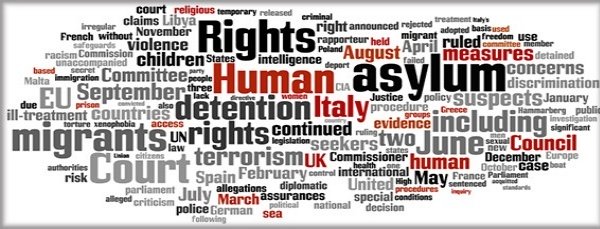[European Parliament, Brussels, 9 February 2011] Due to the fact that as many as 12 million European Roma continue to face segregation and intergenerational poverty throughout the EU, the Union is searching for European-wide solutions. With a European Roma Strategy being a priority for the Hungarian EU Presidency, we talked to Lívia Járóka (EPP), the only Roma member of European Parliament. The 36-year old Hungarian MEP has prepared a report on the strategy that would allow Europe to use the untapped potential of the Roma people.
You are trying to launch a European Roma Strategy. What issues are most essential?
LJ: We have to change from the very ethnic understanding of this minority into something more open, giving Roma more possibilities especially from an employment point of view. We have European laws to fight discrimination, but they are not implemented in all European countries. However, ethnic discrimination is only one of the factors. We have invisible poverty in Europe, which is not seen by European funding.
LJ: In this Roma strategy, half of the success will depend on the Roma community itself and on good leaders. So there is a need for a new and strong leadership of educated Roma, coming from communities and representing them.
We tend to think that Roma lead nomadic lives. But is it still like this?
LJ: Roma have the right of free movement as European citizens but the question is at what extent they want to move: today 95% of European Roma are sedentary. Those 5% who are moving are doing it for cultural reasons or for crafts.
LJ: In the last few years we have seen a clear economic migration. European countries coming out of the Communist era faced new economic realities that left the poorest without jobs. Roma were the first to be expelled not because their ethnic group, but because they were unskilled.
LJ: Nomadic life is not what Roma want. They want work, dignity and food for tomorrow. The next generation of people run the risk of poverty not for being a Roma but due to having unemployed parents. We have to take care that Roma are not going to migrate for economic reasons as they did to France, UK, Italy and many other countries. But even many non-Roma poor people are migrating to look for jobs.
What are keys to empowering Roma women?
LJ: In disadvantaged areas two generations of Roma are growing up without seeing their parents going to work. This also means that women are the ones that physically and mentally keep up the hope. I have seen – and I am an anthropologist – how much depends on women: they make sure that food is on the table every day and that the rights of their children are fulfilled.
LJ: Empowering Roma women is one of the key elements of our strategy. We have to be sure that forced marriages are not happening, we have to fight against trafficking and drugs.
By your example you have proved that poverty and social exclusion do not have to be synonyms of Roma communities. What would you suggest to other Roma who want to follow your example?
My luck was education. My parents moved to make sure that we were not put in segregated classrooms just for Roma children and they took care that we studied well enough to get into good schools. However, the most important asset that I got was the family bond and our very strong tradition of accepting each other.
LJ: I come from a mixed marriage. I saw what my parents did to give us a better life. My brothers and me, we all went to University and it was all due to the positive message of my parents.
Did you experience discrimination when you were young?
LJ: For me being a Roma is such a positive asset. It enriches me. My father has always been very protective. I have never heard any interethnic comment at home. It was natural for us to be Roma, but first of all to be Hungarian and European.
LJ: However my sister – who is 10 years younger than me – was born during the times of regime change, economical turbulence and social tensions. A gap was growing between Roma ad non-Roma, poor and rich: we started feeling it on our skin.
LJ: My own colleagues and friends at University had a very little knowledge about Roma realities and were completely misled by prejudices. I realised I had to step in and show that besides taking care of national curricula, social dialogue and working inside Roma communities, it is also extremely important to work with media.
How can we create mutual trust, understanding and co-operation?
LJ: The media has a very important role – to show models of co-operation between Roma and the non-Roma. Economic crisis makes it harder to fight mistrust. Our role should be to create places for integration like sport clubs, common classrooms and workplaces. Then we need a very good Roma leadership. I am looking forward to having a real community-based bottom-up approach coming from Roma society.
***
During its sitting on 2 February 2011 the European Parliament paid tribute to the victims of the Roma genocide, carried out during World War II.
The draft report on EU strategy for Roma inclusion will be voted by MEPs on the Civil Liberties Committee in February and should reach the whole Chamber in March.



